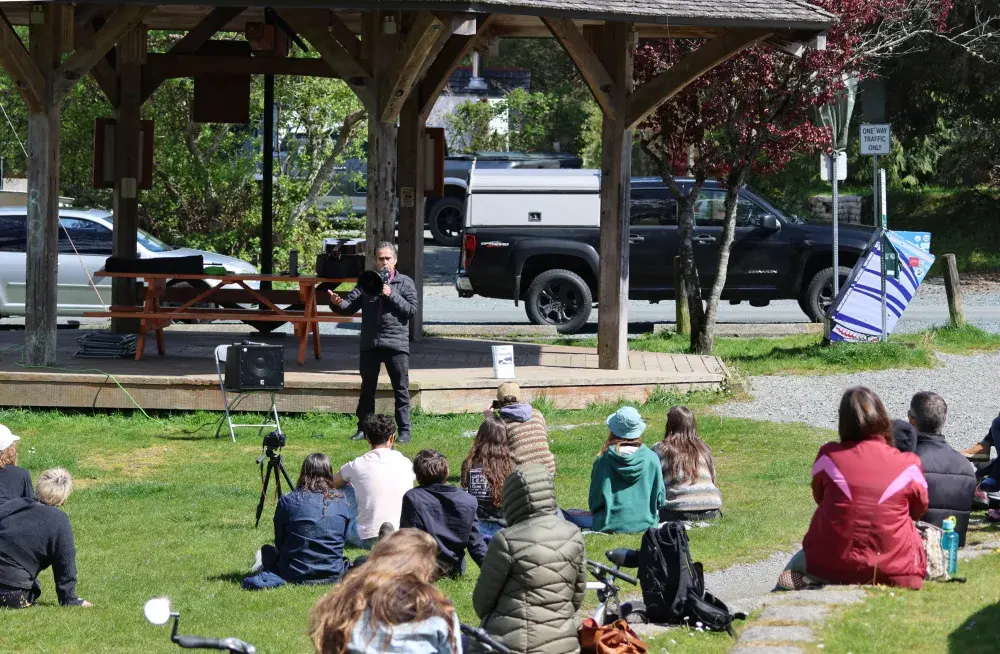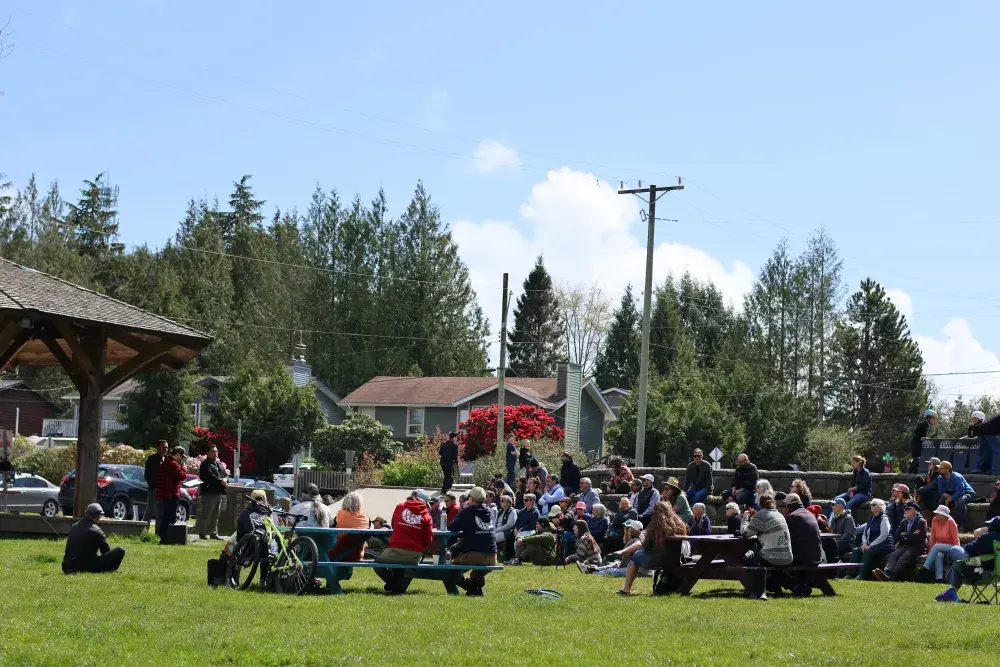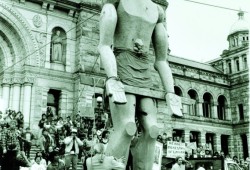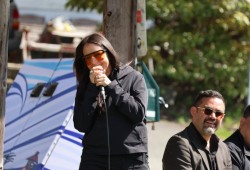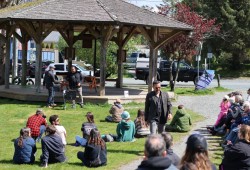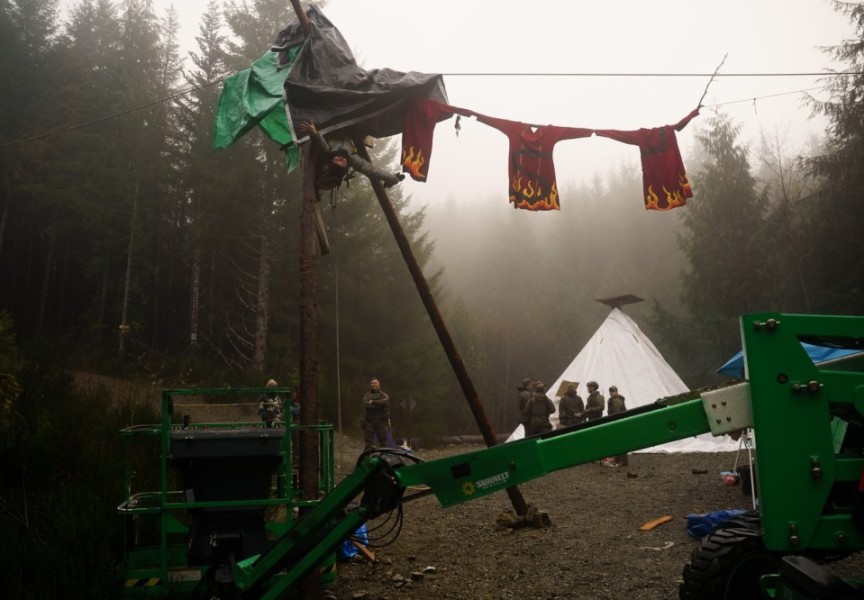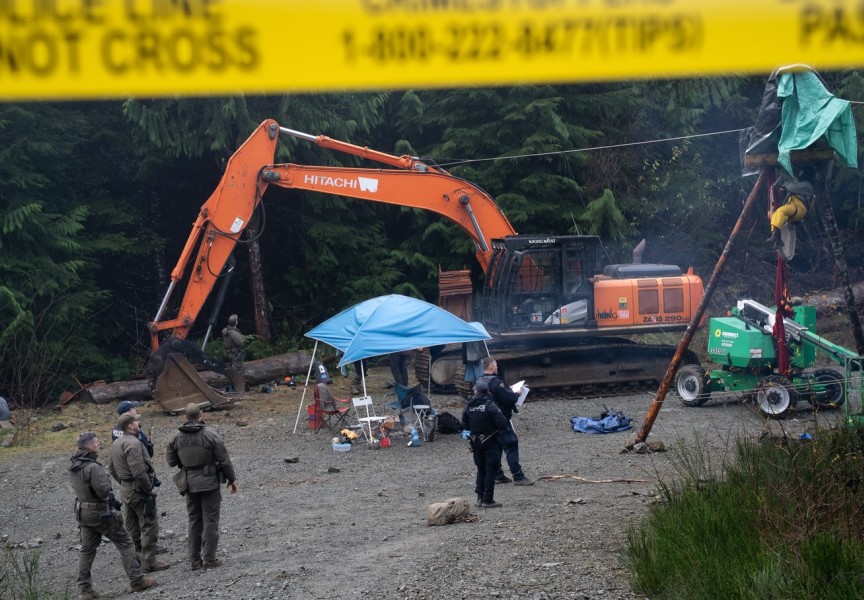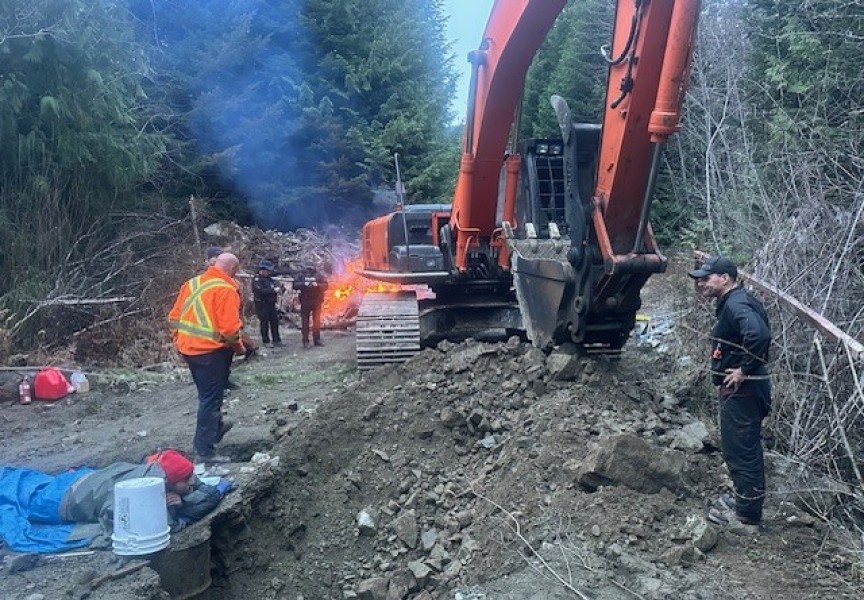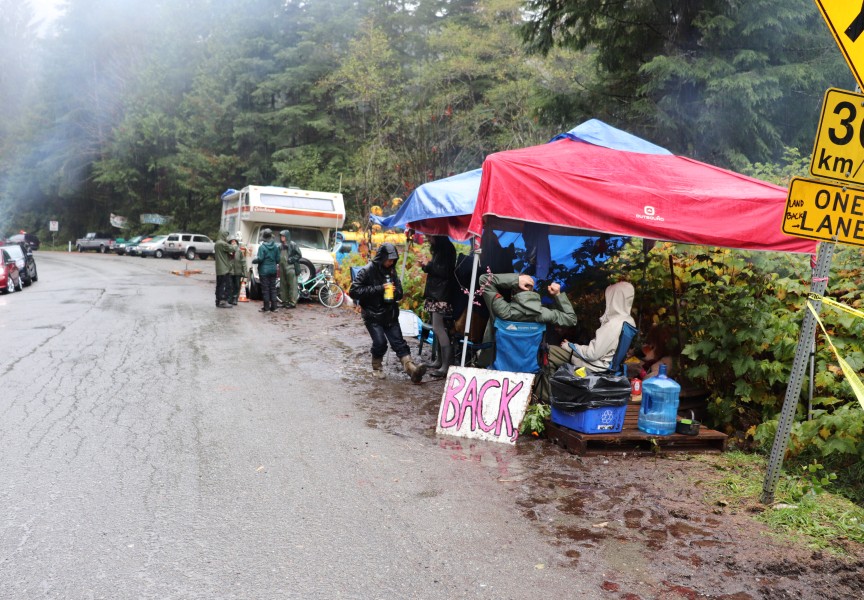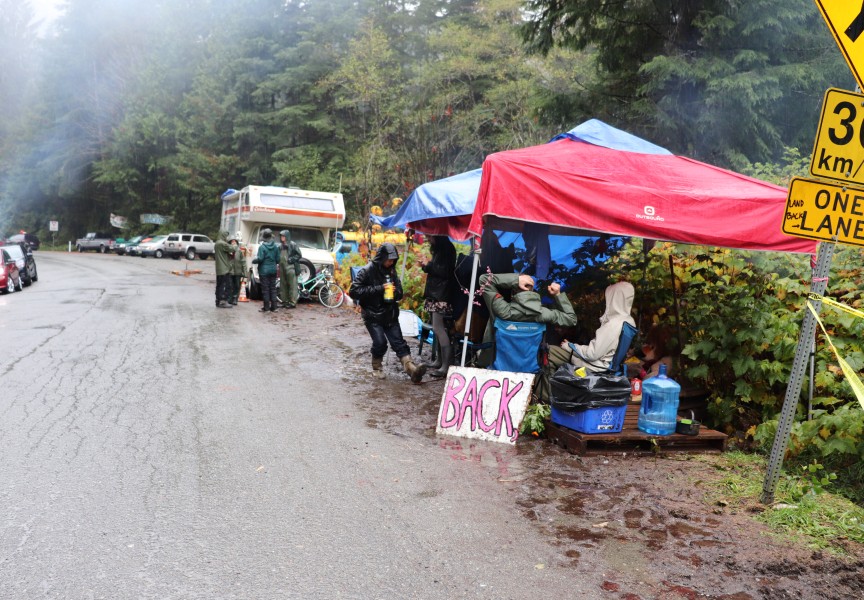Lovely red and soft pink Rhododendrons surround an intimate gathering of Indigenous leaders, non-Indigenous allies, hippies, misfits and a handful of media at Tofino’s Village Green on April 21. It’s been 40 years since Tla-o-qui-aht First Nation, with support from the Nuu-chah-nulth Tribal Council (NTC), famously declared Meares Island the “Wanachis Hilth-huu-is Tribal Park” under Nuu-chah-nulth law.
The Meares Declaration protected the old-growth forest from being logged, and is recognized as one of the largest demonstrations of civil disobedience in North America. Prior to the conservation stance, there was no “tribal park” in existence under provincial or federal legislation.
Moses Martin was Tla-o-qui-aht’s elected chief councillor back in 1984.
“I want for us to remember the many chiefs and elders and all of those people that have passed on that were big supporters of Meares to begin with. It’s a time that we all got on the same page and supported what we were trying to achieve, some protection,” said Martin, who was about 40 when he led the stand against industrial logging giant MacMillan Bloedel (MB).
“It seems like a long time ago, but also like it was yesterday,” Moses shared.
As chief councillor, Martin went to court to represent Tla-o-qui-aht or “660 Indian Band” when MB requested a court injunction against the Meares Island protectors. The injunction was granted, which led to an appeal by the NTC. In March 1985, the injunction was overruled and the appeal was successful.
“Oh boy! I’m still living it,” Martin says about the victory. “I still see what we all protected. Any chance I get, I take people on tours of the big trees on Meares and tell them about the history.”
Tla-o-qui-aht musčim Eli Enns told the Ha-Shilth-Sa that more events are planned to honour the 40th anniversary of the Meares Island Declaration.
“There were so many dates in 1984,” said Enns. “Moses educated me and said the culmination of it all was Nov. 21, 1984; that was the day a peaceful standoff took place at Tsis-a-Kis Bay. There was another big one on Oct. 20, 1984, were the Cedar Man was brought to the lawns of the Legislation Assembly in Victoria.”
Enns, who is the president of the IISAAK OLAM Foundation and founder of the Naa'Waya'Sum Gardens in Tofino, plans to reenact the historical day by bringing two new cedar welcome figures carved by Joe and Carl Martin to the B.C. parliament buildings on October 20, 2024.
“Meares Island Tribal Park really captured the imagination of an international audience and brought to the fore, provincially, the mismanagement of the government of the day of our forest resources,” said Enns. “It’s convoluted and complicated, but what is very simple is we all need clean air and clean water. That’s what we want to bring to the forefront of the celebration of the 40th anniversary of the Meares Island Tribal Park.”
Flash forward to 2024, we see British Columbia and the Government of Canada heavily investing in the Indigenous-led conservation of nature — on Nov. 3, 2023 the First Nations Leadership Council (FNLC) signed a $1 billion funding agreement with the provincial and federal governments to protect and conserve biodiversity, habitats, and species at risk in the province. This “Tripartite Framework Agreement on Nature Conservation” (or the Framework Agreement) is one of the most significant investment plans in the history of Canada, and is rooted in recognition of First Nations title and rights, according to a news release by the Minister of Environment and Climate Change Canada.
“With this historic agreement, we’re working together and in close partnership with the federal government and First Nations to protect our environment now and ensure we pass this natural inheritance on to our children and grandchildren,” said B.C. Premier David Eby in the media release.
“It’s a breath of fresh air to see Eby committed to (protecting 30 per cent of the planet’s oceans, lands, and freshwaters by 2030) and working with Indigenous people,” said Enns.
As the crowd at Tofino’s Village Green casually dispersed, Friends of Clayoquot Sound packed up their brochures while Maureen Fraser returned to her bakery and Michael Mullin to his bookshop.
“I still hope the work continues,” says Martin, who has since dedicated his life to study and teach Nuu-chah-nulth language.
He went on to offer words of wisdom passed down from his parents:
“Live the language. ʔiisaak is that word that we use for the Law of Respect. It doesn’t matter what you do, you’ve got to do it with respect. Sustainability wasn’t anything new to Indigenous people.”

